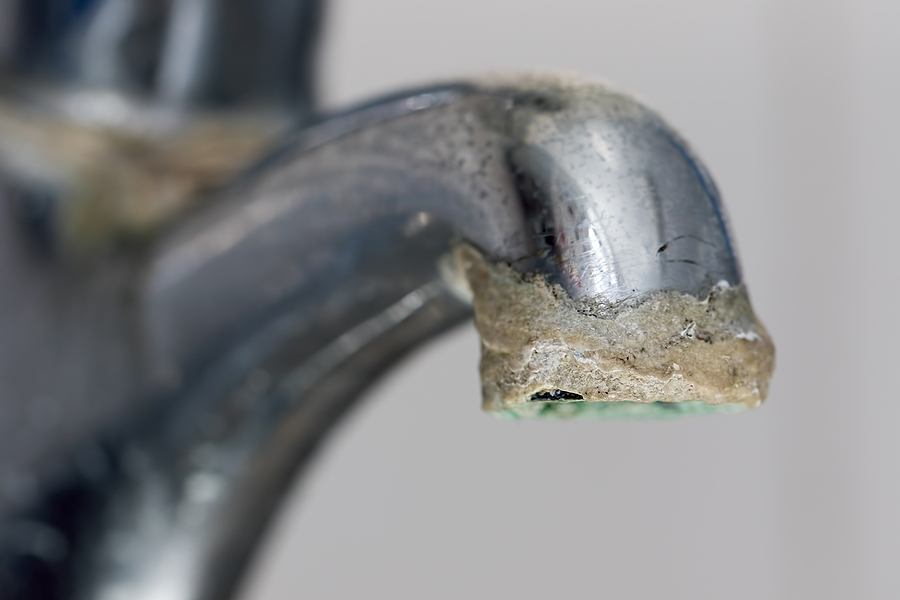Schedule a Plumber This Saturday to Get 50$ OFF
Schedule a Plumber This Saturday to Get 50$ OFF

As soon as your faucets stop looking their best and become discolored from calcium buildup, chances are it isn't just dirt that has calcium buildup! Unfortunately, getting rid of that buildup doesn't need to be hard or require professional assistance. In this guide by Mr. Rooter Plumbing, we'll walk through each step for making them as good as new yourself. Should things get tricky, remember there is always help available from a plumbing service!
First and foremost, it is useful to understand why calcium builds up. Our homes contain water with minerals like calcium that dissolve when we run our taps; over time, this calcium builds up behind and forms crusty layers at our faucets—this process is natural and occurs worldwide!
Let's ensure we have everything needed for our cleaning process on hand; these should all be simple household items like household sponges.
Vinegar is like a magic potion for removing calcium buildup. Here’s what you do:
If you're using a plastic bag, fill it with vinegar and carefully tie it around the faucet so the part with the buildup is completely submerged. Use a rubber band or tape to keep it in place. If you're using a bowl, just remove the faucet parts (if you can) and soak them directly in the bowl filled with vinegar.
Let it soak for a few hours or overnight if the buildup is bad. Vinegar is gentle and won’t harm your faucet, but it's tough on calcium!
After the soak, take your old toothbrush and gently scrub away the calcium buildup. You’ll be surprised at how easily it comes off now that it’s soaked in vinegar. If there are still some stubborn spots, you can apply more vinegar directly onto the brush to help break it down.
Once you’ve scrubbed everything off, rinse the faucet with water to remove any remaining vinegar or calcium. Then, take a soft cloth and dry everything off. You’ll likely notice your faucet looking shiny and new again!
These steps should typically suffice in terms of solving your faucet repair needs; however, if the buildup is severe or you feel inexperienced in taking apart your faucet yourself, it might be beneficial to call in professional services for additional support. There's nothing shameful in seeking assistance here—faucet repairs can often require professional hands, so it can't hurt to have some extra assistance on hand.
To prevent calcium buildup from returning too soon, try wiping down your faucets after each use and wiping dry with a paper towel afterward—this prevents water from evaporating into thin air, leaving minerals behind. In addition, regular vinegar cleaning sessions may prevent minor buildups altogether.
If your faucet still isn't functioning as you would expect or you notice leaks, or any of its related fixtures is malfunctioning, or is causing leakage issues, it may be time to contact a professional plumbing service. Plumbing experts can address everything from simple faucet repair jobs to more serious plumbing problems, so if you are in doubt about anything, it is wiser to seek professional guidance than attempt your own fixes yourself!
Calcium buildup on faucets may be frustrating, but you should usually be able to take care of it yourself with some time and vinegar. Routine maintenance will keep your faucets looking their best while functioning optimally - however, if DIY solutions simply won't do, don't hesitate to seek professional plumbing repair services; their tools and knowledge ensure your plumbing works smoothly for years ahead.
In addition to being a crucial component of every home's plumbing system, sewer lines are also frequently disregarded because they are out of sight. Nonetheless, they shouldn’t’ be out of…
When to Get a Drain Replacement Have you ever considered what happens to the water after using it? Water gets drained through our drains, but what happens…
Common Issues That Indicate You Need a Toilet Repair Noticing problems with the toilets is relatively easier since it’s one of the most commonly used fixtures inside…